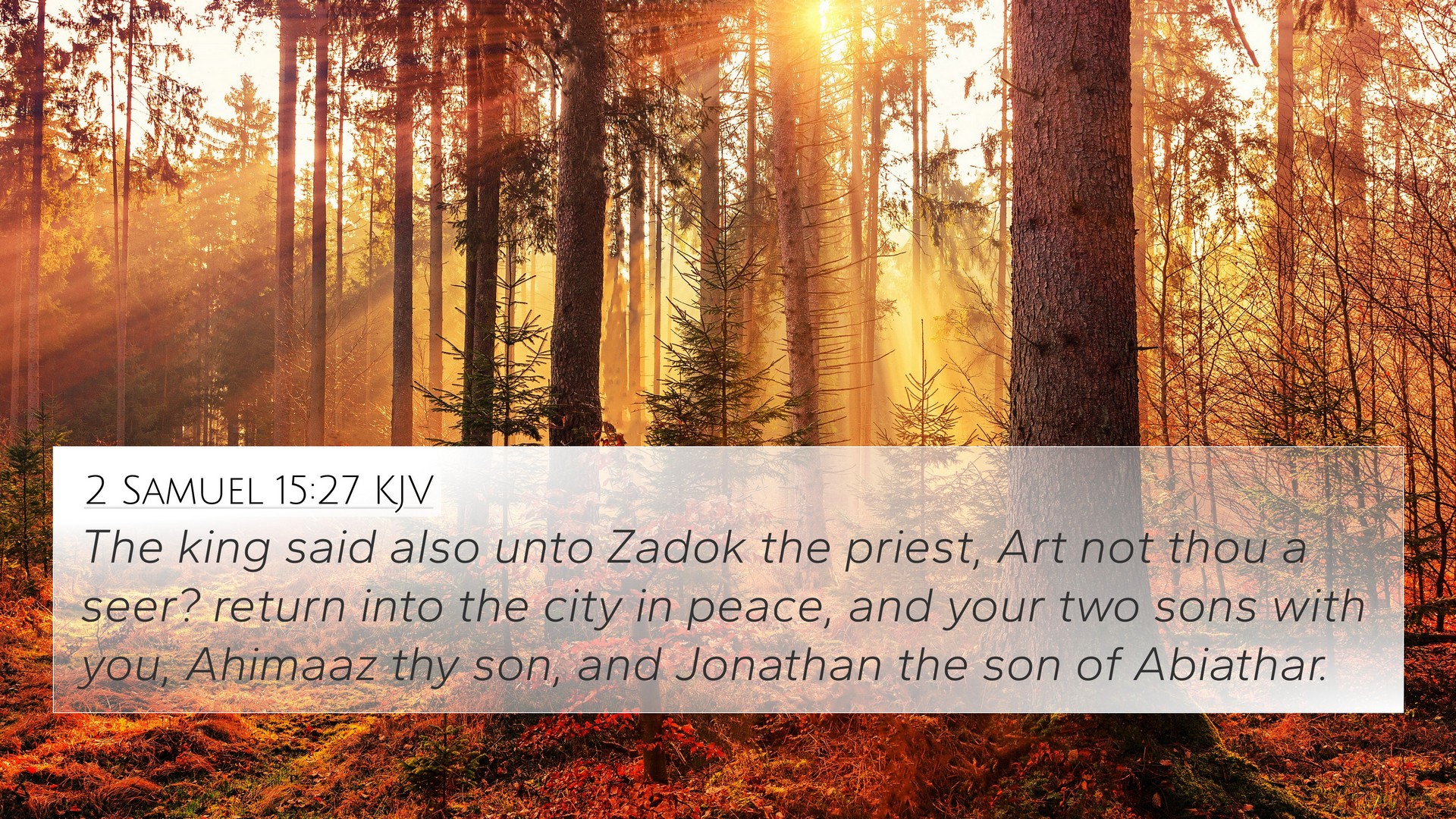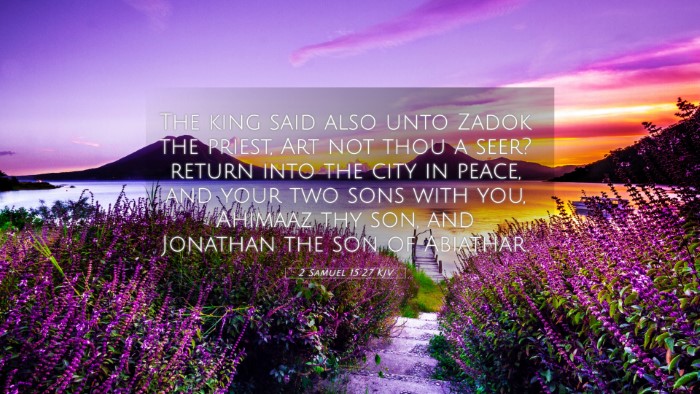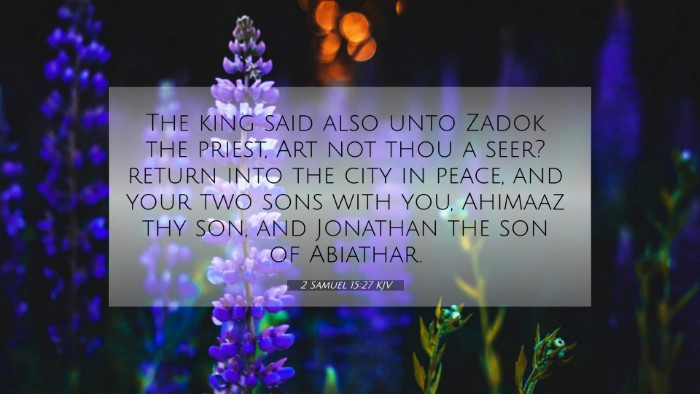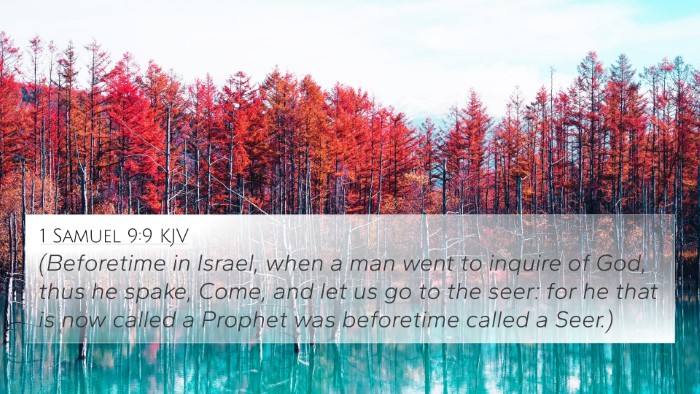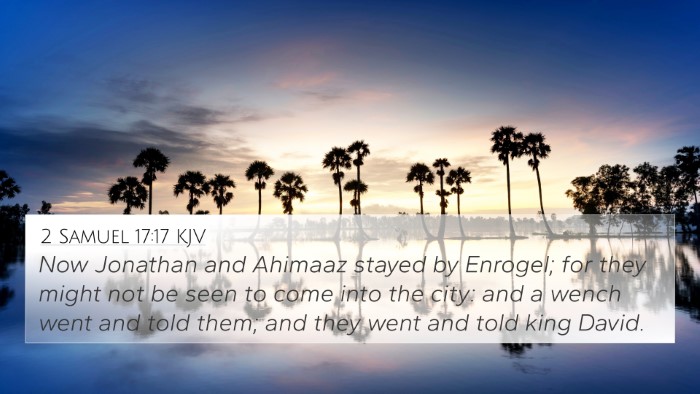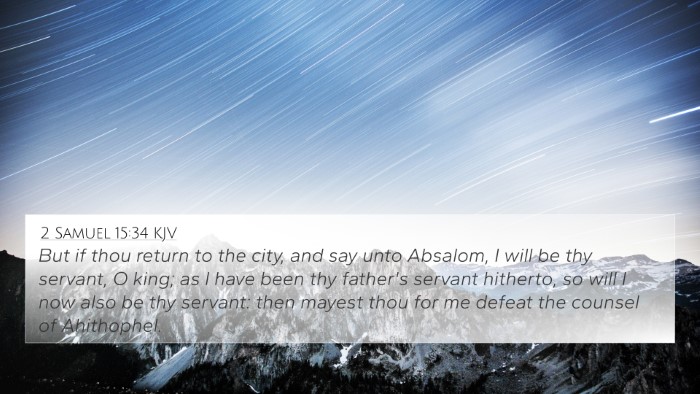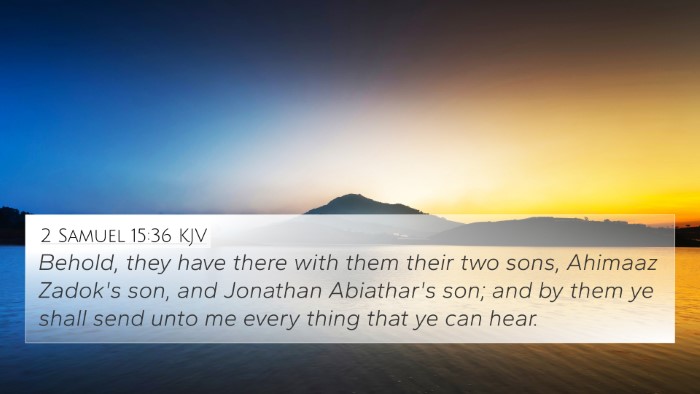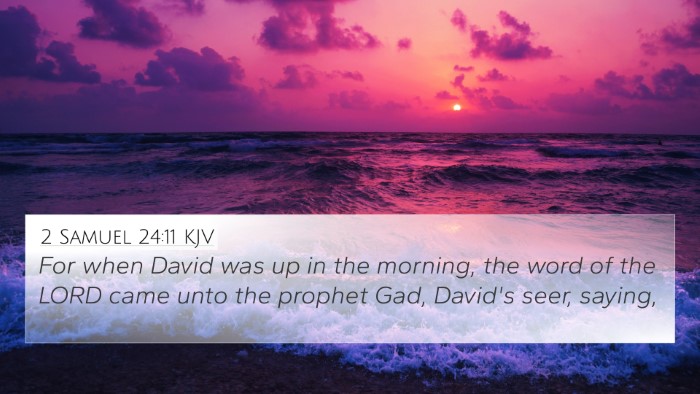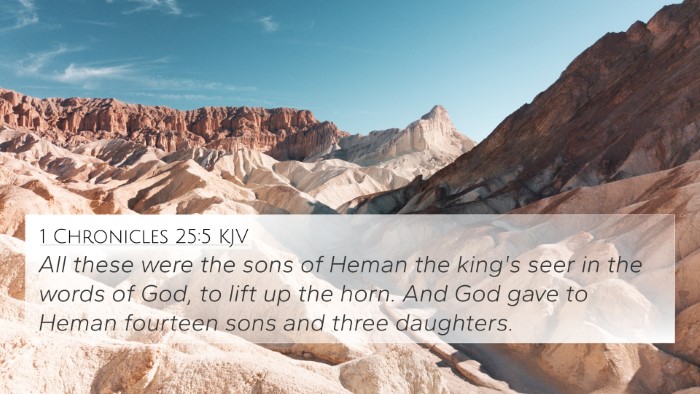Understanding 2 Samuel 15:27
Verse Reference: 2 Samuel 15:27
Verse (KJV): "The king said also unto Zadok the priest, 'Art not thou a seer? return into the city in peace, and your two sons with you, Ahimelech thy son, and Abiathar's son Jonathan.'"
Contextual Background
This verse occurs during a tumultuous period in David's reign, marked by Absalom's rebellion. David finds himself compelled to escape Jerusalem but still seeks to maintain a connection with those loyal to him. Ps. 55:12-14 provides deeper insight into the betrayal David experiences, while 2 Samuel 15 overall reflects themes of loyalty, prophecy, and divine guidance.
Commentary Insights
-
Matthew Henry:
Henry emphasizes David’s careful strategy in safeguarding his loyal priests, Zadok and Abiathar. By sending them back to Jerusalem, he ensures that he has eyes and ears within the city to relay vital information. This act signifies David's trust in Zadok as a prophet and seer, highlighting the relationship between the monarchy and the priesthood.
-
Albert Barnes:
Barnes notes the significance of Zadok as a seer and his role as a mediator between the kingdom and God's will. By returning to Jerusalem, Zadok serves as a conduit for God’s decisions and purposes. This indicates the importance of spiritual guidance in leadership, especially in times of strife.
-
Adam Clarke:
Clarke offers a practical overview, stressing the need for discernment in aligning oneself with God’s plan. He underscores the fathers' legacy of faith, as both Ahimelech and Jonathan represent continuity of David's lineage and divine favor amidst political turmoil.
Bible Verse Cross-References
This verse connects to several other Biblical texts that enrich its meaning:
- 1 Samuel 22:20-23: This passage recalls Abiathar escaping to David after the massacre at Nob, establishing a backdrop for this priest's loyalty.
- 2 Samuel 15:12: Reflects the gathering of Absalom’s conspirators, setting the stage for David's call to Zadok and his return to Jerusalem.
- Psalm 55:12-14: Captures David's feelings of betrayal and sorrow by someone close, enhancing the emotional landscape of this moment.
- 2 Samuel 20:25: Introduces Amasa, contrasting Zadok’s loyalty with others who may not have shared the same commitment to David.
- 1 Chronicles 12:35: Highlights the loyalty and ability of those who choose to stand with David during his reign, emphasizing the importance of righteous counsel.
- Jeremiah 38:24-27: Connects to the theme of prophets advising kings, as seen through Zadok's role.
- Hebrews 5:1: Relates to the priestly function, deepening the understanding of Zadok’s calling as a priest now alive in the New Testament context.
Thematic Connections
The themes present in 2 Samuel 15:27 resonate through various Biblical narratives:
- Loyalty: The response of Zadok and his sons indicates unwavering loyalty, akin to Ruth’s commitment in the book of Ruth.
- Leadership: David's reliance on spiritually discerning individuals echoes throughout scriptures, reminding readers of the balance between faith and governance.
- Divine Insight: Zadok's role as a seer offers parallels with other prophetic figures throughout the Bible, stressing the need for divine guidance in times of trouble.
- The Kingdom of God: This passage reflects God's kingdom dynamics, seen also in Matthew 5:14-16, where followers of Christ are called to be light, similar to how Zadok acts as spiritual light amidst darkness.
Concluding Thoughts
In conclusion, 2 Samuel 15:27 enriches the understanding of the relationship between David and the priesthood. By studying this verse in conjunction with cross-references and thematic connections, readers can grasp the profound implications of loyalty, spiritual insight, and the interconnectedness of God’s plan. Understanding these connections and verses not only enhances scriptural interpretation but also reveals the timeless principles of leadership and faith in God.
